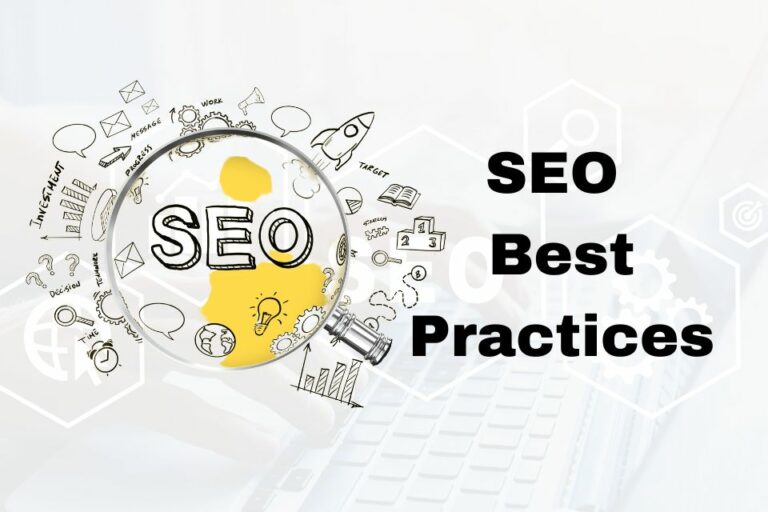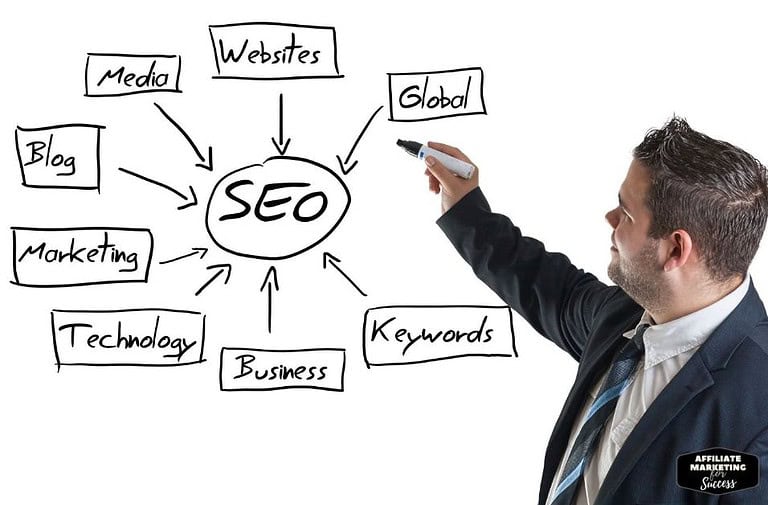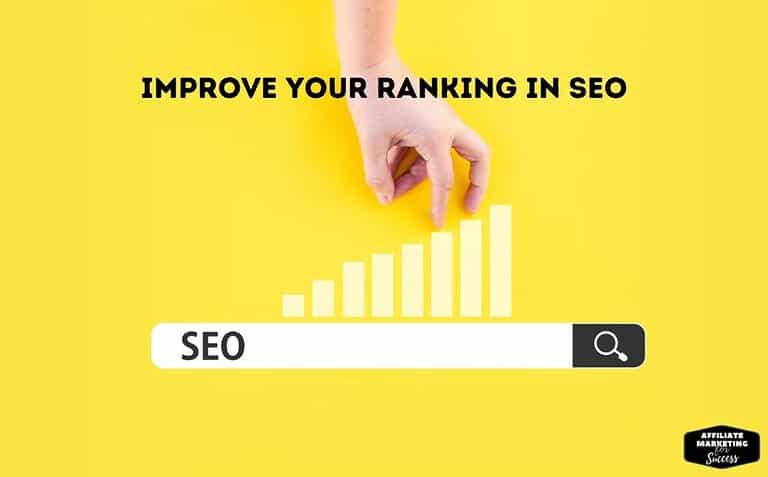Importance of SEO: 7 Key Benefits for Bloggers in 2025
In today’s hyper-competitive digital landscape, having a website is just the beginning of your online journey. To stand out, you must master Search Engine Optimization (SEO). This guide will explore the significance of SEO and its impact on your website’s traffic, conversions, and success.
Key Takeaways:
-
SEO Importance: Boosts visibility and search rankings, attracting more customers.
-
Main Benefits: Increases organic traffic, leads, user experience, credibility, and offers cost-effective, sustainable results.
-
Three Pillars: On-page (content/structure), off-page (authority), and technical SEO (site performance).
-
Metric Impact: Improves traffic, conversions, reduces bounce rates, increases time on site and brand awareness.
-
Best Practices: Keyword research, content optimization, and link building.
-
Success Stories: Proven traffic and revenue boosts through effective SEO strategies.
What is SEO and Why is it Crucial?
SEO is the practice of enhancing your website to boost its visibility and ranking in search engine results. Effective SEO improves your website’s search ranking, helping potential customers discover and connect with it.
The Undeniable Benefits of SEO
-
Skyrocketing organic traffic: Watch your visitor numbers soar without paying for each click.
-
Higher-quality leads: Attract users actively searching for your products or services.
-
Enhanced user experience: SEO practices often align with providing a better experience for your visitors.
-
Boosted brand credibility: Higher search rankings translate to increased trust in your brand.
-
Cost-effective marketing: Once established, SEO continues to deliver results with minimal ongoing investment.
-
Long-term, sustainable results: Unlike paid advertising, SEO benefits compound over time.
The Three Pillars of SEO
To fully grasp the importance of SEO, it’s crucial to understand its three main components:
1. On-Page SEO: Optimizing Your Website’s Content and Structure
On-page SEO focuses on optimizing individual web pages to rank higher and attract more relevant traffic. Key elements include:
-
Crafting compelling, keyword-rich title tags and meta descriptions
-
Creating high-quality, relevant content that satisfies user intent
-
Strategically using header tags (H1, H2, H3) to structure content
-
Optimizing images with descriptive alt text and compressed file sizes
-
Improving internal linking structure to distribute page authority
2. Off-Page SEO: Building Your Site’s Authority and Reputation
Off-page SEO encompasses actions taken outside your website to improve its search engine rankings. Essential strategies include:
-
Acquiring high-quality backlinks from reputable websites
-
Engaging in strategic social media marketing to amplify content reach
-
Leveraging influencer outreach to expand brand awareness
-
Participating in guest blogging opportunities on relevant sites
-
Optimizing local SEO through Google My Business and local citations
3. Technical SEO: Enhancing Your Site’s Foundation
Technical SEO focuses on improving the technical aspects of your website to enhance its crawlability and indexability. Critical elements include:
-
Boosting site speed and performance through optimization techniques
-
Implementing SSL certificates to ensure secure browsing
-
Creating and submitting XML sitemaps for improved indexing
-
Optimizing robots.txt files to guide search engine crawlers
-
Ensuring mobile-friendliness through responsive design
The Profound Impact of SEO on Website Traffic & Conversions
SEO plays a pivotal role in driving organic traffic to your website and improving conversion rates. Let’s explore this impact in detail:
| Metric | Impact of SEO | Explanation |
|---|---|---|
| Organic Traffic | ↑ 50-100% | Effective SEO can double your organic traffic within 6-12 months |
| Conversion Rate | ↑ 10-20% | SEO attracts more targeted traffic, leading to higher conversion rates |
| Bounce Rate | ↓ 20-30% | Improved relevance and user experience reduce bounce rates |
| Time on Site | ↑ 30-50% | Engaging, optimized content keeps visitors on your site longer |
| Brand Awareness | ↑ 40-60% | Higher search visibility increases brand recognition and trust |
As this data clearly demonstrates, implementing a robust SEO strategy can have a transformative impact on your website’s performance and overall business success.
SEO Best Practices: Your Roadmap to Success
To help you harness the full power of SEO, here are some proven best practices to implement:
1. Comprehensive Keyword Research
Keyword research is the cornerstone of any successful SEO strategy. Utilize powerful tools like Google Keyword Planner, SEMrush, or Ahrefs to identify relevant keywords for your business. Focus on:
-
Long-tail keywords with lower competition and higher conversion potential
-
Understanding the search intent behind keywords
-
Analyzing keyword difficulty and search volume to prioritize efforts
Keyword Research Tool Comparison
| Tool | Features | Pricing | Best For |
|---|---|---|---|
| SEMrush | Comprehensive keyword data, competitor analysis | $99.95-$399.95/month | All-in-one SEO solution |
| Ahrefs | Extensive backlink data, content explorer | $99-$999/month | Link building and content research |
| Google Keyword Planner | Free, integrated with Google Ads | Free with Google Ads account | Budget-conscious beginners |
2. Content Optimization Strategies
Create high-quality, engaging content that addresses your audience’s needs and naturally incorporates your target keywords. Remember to:
-
Use keywords strategically in titles, headings, and throughout the content
-
Develop in-depth, comprehensive content (aim for 2000+ words for pillar pages)
-
Incorporate relevant images, videos, and infographics to enhance engagement
-
Optimize meta titles and descriptions to improve click-through rates from SERPs
3. Effective Link Building Techniques
Build high-quality backlinks to improve your website’s authority and search engine rankings. Effective link-building strategies include:
-
Creating shareable, linkable assets (infographics, original research, comprehensive guides)
-
Pursuing guest posting opportunities on reputable websites in your industry
-
Implementing broken link building to provide value to other site owners
-
Actively participating in industry forums and online discussions
Real-World SEO Success Stories
Let’s examine some compelling case studies of businesses that have achieved remarkable results through SEO:
Case Study 1: E-commerce Powerhouse
| Metric | Before SEO | After SEO (6 months) | Improvement |
|---|---|---|---|
| Organic Traffic | 10,000/month | 25,000/month | 150% increase |
| Conversion Rate | 1.5% | 2.8% | 86% increase |
| Revenue | $50,000/month | $140,000/month | 180% increase |
This e-commerce website implemented a comprehensive SEO strategy, focusing on product page optimization, content marketing, and technical SEO improvements. The results were nothing short of spectacular, with significant increases in traffic, conversions, and revenue.
Case Study 2: Local Business Triumph
A local dental practice invested in targeted local SEO efforts, including:
-
Optimizing their Google My Business listing for improved local visibility
-
Creating location-specific content to attract nearby customers
-
Building local citations and acquiring geo-relevant backlinks
Results after just 3 months:
| Metric | Before SEO | After SEO | Improvement |
|---|---|---|---|
| Google Maps Views | 500/month | 2,000/month | 300% increase |
| Website Traffic | 1,000/month | 3,500/month | 250% increase |
| New Patient Inquiries | 20/month | 60/month | 200% increase |
These case studies vividly illustrate the transformative impact that SEO can have on businesses of all sizes and across various industries.
Interactive SEO Audit Checklist
To help you assess your current SEO status and identify areas for improvement, use this interactive checklist:
-
Keyword research completed and target keywords identified
-
On-page SEO elements optimized (title tags, meta descriptions, header tags)
-
Content audit performed and content gaps addressed
-
Technical SEO issues resolved (site speed, mobile-friendliness, crawlability)
-
Backlink profile analyzed and link-building strategy developed
-
Local SEO optimized (if applicable)
-
Schema markup implemented where relevant
-
User experience and site navigation improved
-
Content calendar created for ongoing SEO content creation
-
Analytics and tracking set up to monitor SEO performance
Conclusion: Embracing the Power of SEO
The importance of SEO in today’s digital landscape cannot be overstated. It’s not just a marketing tactic; it’s a fundamental approach to ensuring your website’s visibility, credibility, and success in the online world. By implementing effective SEO practices, you can significantly improve your website’s visibility, attract more qualified traffic, and ultimately drive substantial increases in conversions and revenue for your business.
Remember that SEO is an ongoing process that requires consistent effort, adaptation to evolving search engine algorithms, and a commitment to providing value to your audience. Stay informed about the latest SEO trends and best practices, and don’t hesitate to seek professional help if needed.
By prioritizing SEO and making it a core part of your digital strategy, you’re investing in the long-term success and sustainability of your online presence. Start implementing these strategies today, and watch as your website climbs the ranks, attracts more visitors, and achieves unprecedented levels of online success!
Are you ready to harness the full potential of SEO for your website? Begin your journey to search engine dominance today and unlock a world of opportunities for your online business!
Resources:
- Backlinko’s SEO Trends in 2024 article
This comprehensive guide covers major SEO trends for 2024 including EEAT updates, algorithm changes, AI tools, and more. It provides actionable advice on how to adapt your SEO strategy. - Semrush SEO Tools
Semrush offers a suite of powerful SEO tools, many with free versions. Their Keyword Magic Tool, site audit tools, and other features are highly recommended for SEO in 2024. - “SEO 2024: Learn Search Engine Optimization with Smart Internet Marketing Strategies” book by Adam Clarke
This regularly updated book covers the latest SEO strategies and is highly rated on Amazon. It’s a comprehensive guide for beginners and experienced SEOs. - Ahrefs SEO Tools and Resources
Ahrefs is consistently recommended as one of the top SEO software suites, offering keyword research, backlink analysis, site audits and more. They also provide educational content on their blog and YouTube channel. - Google Search Console
Google’s own free tool provides invaluable data directly from Google about your site’s search performance, indexing issues, and more. It’s considered essential for SEO in 2024. - Amplify’s SEO Guide for 2024
This comprehensive guide covers SEO fundamentals as well as emerging trends for 2024 like AI integration, topic clusters, and Google’s Helpful Content Update. It provides practical tips for implementing an effective SEO strategy.
I’m Alexios Papaioannou, an experienced affiliate marketer and content creator. With a decade of expertise, I excel in crafting engaging blog posts to boost your brand. My love for running fuels my creativity. Let’s create exceptional content together!













